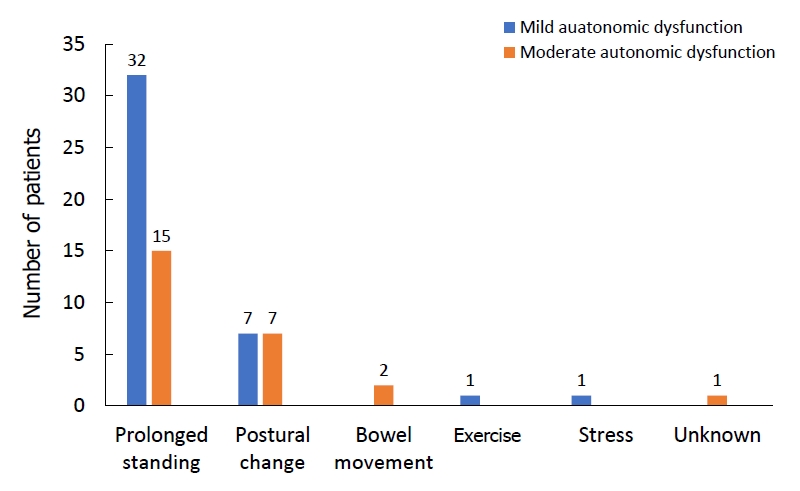
|
Question: It is well known that autonomic dysfunction contributes to vasovagal syncope (VVS). Does the degree of autonomic dysfunction contribute to clinical manifestations, diagnostic methods, treatment, and prognosis?
Finding: The clinical manifestations, diagnostic methods, treatment, and prognosis differ between patients with mild and moderate degrees of autonomic dysfunction.
Meaning: VVS is caused by autonomic dysfunction, but autonomic dysfunction severity need not be classified. |






